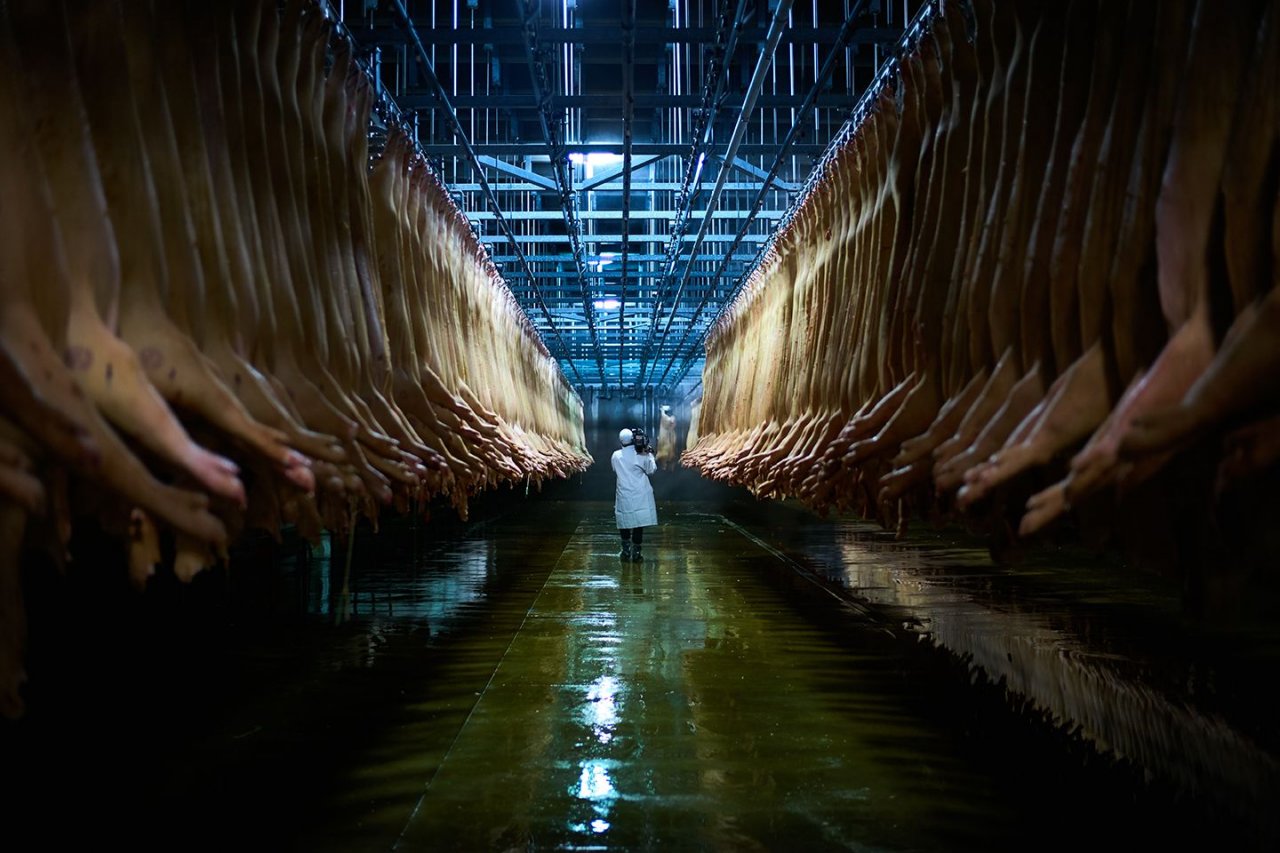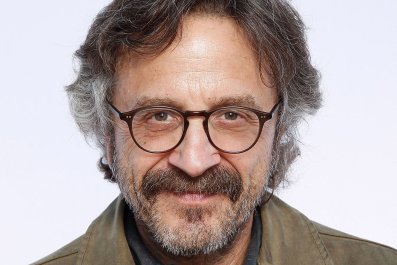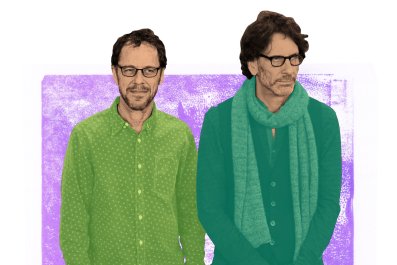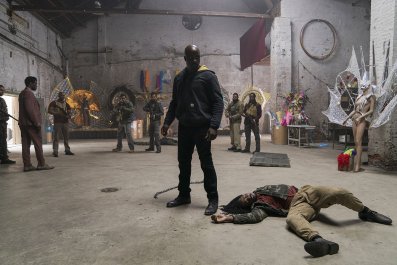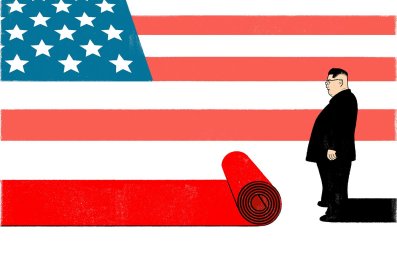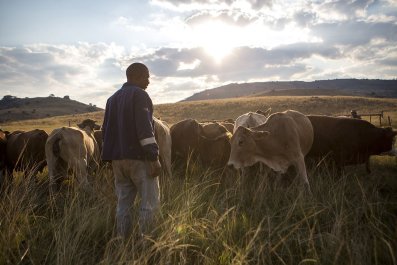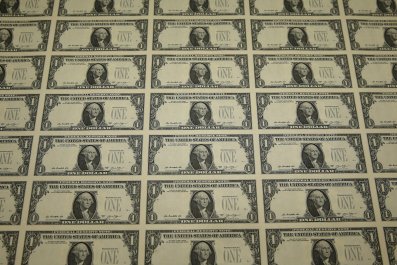Jonathan Safran Foer frequently hears about his readers' eating habits. This is perhaps unusual, considering he is not a physician or a nutritionist; he's a best-selling novelist, known for, among other books, 2002's highly inventive Everything Is Illuminated. But the author's 2009 foray into nonfiction, Eating Animals, has become an influential text for a new generation—probably the most popular consideration of the ethical dimensions of meat eating since 1975's Animal Liberation by Peter Singer.
Since then, "I don't give a reading, anywhere, for any book I've written, that someone doesn't come up to me and say, 'I became a vegetarian because I read that book,'" says Foer, now 41. In terms of impact, this is perhaps the literary equivalent of the Smiths' "Meat Is Murder," though the author steers away from militant vegan sloganeering; he prefers to reason with rather than condemn steak lovers.
Eating Animals memorably questioned why Americans treat dogs like friends yet remain curiously indifferent to the suffering of, for instance, pigs—affectionate creatures capable of intelligent and social behavior. One person especially moved by the book was Natalie Portman, Foer's longtime friend and occasional email pen pal. "Eating Animals changed me from a 20-year vegetarian to a vegan activist," Portman wrote in 2010 for HuffPost.
Now, the Black Swan actress has produced and narrated a documentary adaptation, more than five years in the making, in collaboration with the director Christopher Dillon Quinn and the nonprofit Farm Forward. According to Foer, Portman read a draft of Eating Animals and began talking about making a film out of the book before it was even published. (She had come to one of his early readings in 2002, when Everything Is Illuminated made him a literary wunderkind, and they struck up a correspondence.)
Why was the actress the best person to take on the project? "I've just known her forever, and she is as smart as they come," Foer says. "It's an uphill climb to get any movie made, and you're climbing almost vertically to [make a film] on a subject as serious as this. I knew she would both have the energy and the wisdom to work for it to get done."
While writing Eating Animals, Foer spent several years observing animal agriculture, researching meat production and considering difficult questions that most Burger King customers prefer to ignore. The resulting book merged memoir-style reflections on our emotional attachment to food (the author's grandmother's beloved chicken recipe, for instance) with harrowing journalistic accounts of what it's like to visit a factory farm. (Sample sentence: "Jamming deformed, drugged overstressed birds together in a filthy, waste-coated room is not very healthy.") Foer's conclusion: "To accept the factory farm feels inhuman."
The documentary is an adaptation in the loosest sense of the term, since it loses Foer's distinctive personal narrative, providing visual documentation of the modern factory farm: animals pumped up on antibiotics and stuffed into tiny crates to await slaughter. While much of the film meditates on that cruelty and the environmental consequences of raising animals for meat (accounting for between 14 and 50 percent of climate change, according to one scientist interviewed in the film), there is also an intimate glimpse of how factory farms exploit small farmers and other individuals.
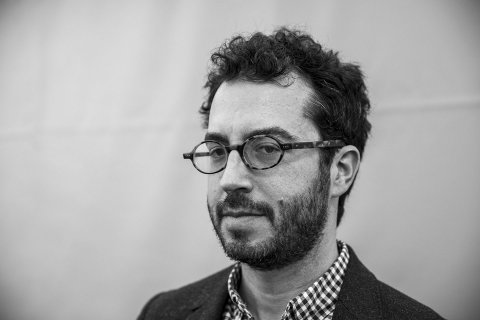
"There is no defense," Foer says. "The defense had been it feeds the world. [But] it feeds the world extraordinarily wasteful, unhealthy food, and there are many other, better ways to feed it." Recently, the author became acquainted with Twitter founder Ev Williams, who helped underwrite the movie. "He became a vegetarian really only for environmental reasons. It had nothing to do with animal welfare. And that was something I wasn't used to. My impression was that pretty much everyone became a vegetarian because of animal cruelty."
That was Foer's reason. The immediate impetus for his book was the birth of his first child 12 years ago, which prompted him to reflect on the ethical and consumer choices he would make on his son's behalf. "Thus far," he says of his two children with ex-wife Nicole Krauss, "they've been raised vegetarian. My older one has eaten some meat at some times for complicated reasons—he was lactose intolerant—but the point is, I'm not rigid about it. My goal is not to create ethical replicas of me but to empower them, both with knowledge and the self-respect to choose for themselves how they want to live, even if it's at odds with my choices."
Foer is cautiously optimistic about the future. "There are more vegetarians on American college campuses right now than Catholics," he says. "It's not like a fringe identity. It's not something that hippy-dippy people do.… I mean, look, 15 years ago, if you were a vegetarian, people would say, 'Why?' Now that question just wouldn't be asked, because we know why. I think we're going to reach a point in the not too distant future when the question is 'Why do you eat that?'"
The meatless lifestyle appears to be growing, especially among American millennials, and there are now dozens of vegan celebrities to keep the Smiths' Morrissey company (Ariana Grande, Bill Clinton, Colin Kaepernick and Portman, to name a few). Recent culinary advancements, such as the Impossible Burger—a plant-based burger devised in a lab to taste, and "bleed," like ground beef—might seem absurdly literal, but such options could attract lifelong meat lovers, at least in the West. A bigger issue is Asia, particularly China and India, which seem to be adopting American eating habits. "That will be the end," Foer says. "We'll have to factory-farm twice as many animals: 100 billion rather than 50 billion—I mean, 100 billion!"
In 2010, while promoting Eating Animals, Foer was surprised to find that the meat industry made no effort to refute his book. Some TV programs wanted to feature him opposite a representative who would publicly defend mechanized production, but producers struggled to find anyone.
"It's amazing," Foer says. "I wrote a very, very comprehensive argument against factory farming, and they had seemingly no interest in saying 'Hey, there's another way of looking at it.' Because there is no other way of looking at it, and because they know what everyone knows, which is: The more you learn about this, the less inclined you're going to be to eat meat.
"Nobody watches a video from inside a factory farm and gets hungry," he adds. "And nobody learns about animal intelligence and feels more inclined to eat them."
Eating Animals, the documentary adaptation of Foer's book, opens on June 15 in the United States.


